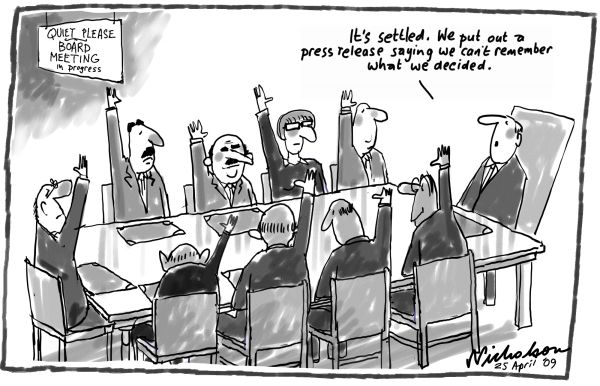Communication is something we do without thinking every day. It might seem easy, but communicating effectively at work actually takes quite a bit of effort. Switching from our familiar Singlish to Standard English and selecting the right words has become more important than ever to appear professional in the workplace. We need to be careful to speak at a steady speed and with the right tone. We should also be able to craft written communication such as emails and proposals that focus on the reader. These will help us build better relationships with our colleagues as well as external customers.
Failure to communicate effectively in the workplace may lead to the loss of business opportunities; lower productivity and misunderstanding between colleagues, having serious repercussions. To avoid these, there are six useful points you can follow for better communication at work.
1. Switch From Singlish To English
While it may not be recognised in the world as a formal language, the majority of Singaporeans have grown up with Singlish. Comprising of a unique blend of English, Chinese, Malay, Tamil and local dialects, there are two major camps of thought on its use. Some feel that it is a beautiful language that showcases the multi-cultural character of our society while others feel that it is too colloquial, so full of grammatical errors that it makes them squirm.
I personally feel that Singlish has grown to become a badge of identity for many of us Singaporeans. But when it comes to official interactions in the workplace, we have to respect the fact that Singapore is a cosmopolitan city. Many of us may be liaising with co-workers, partners or customers from all over the world who are using English as the common and accepted language of communication. The excessive usage of Singlish may lead to frustration, miscommunication and unnecessary misunderstanding.
Make a conscious shift from Singlish to English at work and reserve the usage of Singlish for your family and loved ones.
2. Say It Clearly
The art of speaking English well lies in the user’s command of the language, pronunciation, tone, pace and even pausing. With so many different sounds and a rather complicated spelling system, English is a challenging language to pronounce. Without a conscious effort to pronounce words clearly, you may deliver a grammatically correct speech only to find that your listener does not understand a word.
Getting your pronunciation, tone and pace right helps to improve mutual understanding with colleagues and customers. When you see your listeners responding positively to your words, you will gain greater confidence and be better positioned to represent your organisation in our increasingly international corporate environment.
3. Practise Good Grammar For Business
In today’s environment of informal emails, texting and twitter, where slang and shortcuts are common, it is easy to consider grammar as an annoying technicality, a minuscule detail of speech and writing not worth much effort. But such looseness with the English language can create bad impressions with clients, ruin marketing material and cause communication errors.
So what you say matters as much as how you say it, especially in a professional environment. If you have a tenuous grasp on vocabulary and grammar, now is the time to consider taking a professional business course to get them right. Strive to develop better understanding of nouns, verbs, prepositions and sentence structure and learn to vet your and others’ writing to enhance your communication at work.
4. Polish Up Your Business Writing Essentials
In the business world, people adopt various styles and tones in their written communication. But good writers tend to write plainly, avoiding a legal and bureaucratic style of writing as well as peppering content with excessive courtesy. At its best, good business writing is simple and straight forward so that the intended meaning can come through effectively to the readers.
Of course, different scenarios will require different levels of treatment, tone and formality. It is an advantage to understand what works best in your area of practice and adapt to the commonly accepted style of business writing.
5. Compose Better Emails & Occasionally Letters
A working professional today may send anywhere from 50 to 100 emails a day for personal and business communication. Nothing can be more frustrating than receiving a lengthy email from a co-worker or customer, reading it and not being able to understand it. I rest my case on the importance of writing clear and concise emails.
Before you send an email, take a step back to consider its purpose. The subject header should clearly state the content of the email for the recipient to process it the right way. The content of the email should be concise, easy to read and straight to the point. This will help the recipient to understand clearly and unambiguously the intended message and the required action from him or her. Doing so will show the recipient that you value and respect their time and they will be more likely to reciprocate with a fast response.
6. Keep Accurate Meeting Minutes
Taking meeting minutes is usually one of the most dreaded task in the corporate environment. Yet it is an extremely important piece of communication – a document to keep track of the discussions and decisions made at critical meetings.
Meeting minutes have no value if they are not accurate. The minute-taker should therefore try to write the minutes as soon after the meeting as possible while everything is fresh in their mind. They should review their notes and check to ensure all decisions, actions and motions are clearly noted. The following draft should be a clear and easy to read overview for key stakeholders to review the meeting content.
Well-written minutes will ensure accurate documentation of past communication for future reference.
How To I Enhance The Above Communication Skills?
If you are interested in enhancing your communication skills in the corporate setting, you can refer to the British Council Professional Development Centre’s comprehensive suite of corporate training courses here. Their highly qualified training consultants and an interactive methodology ensure that the valuable lessons learned in their workshops can be quickly implemented back at work.












